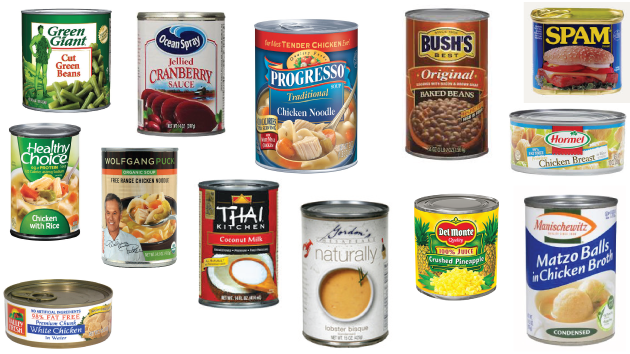Not everything that’s in our homes is good for us. There are many everyday items that are downright dangerous and contain chemicals that are linked to cancer. Some you might have heard of, while others are ones you wouldn’t expect.
1. Johnson & Johnson Baby Powder

In 1999, a woman with mesothelioma sued Johnson and Johnson (J&J) over the asbestos poison found in the powder. Since then, 11,700 plaintiffs have sued the company and an investigative report from Reuters found that J&J had known about the tainted talc since the late 1950s. They have been ordered to pay $4.7 billion in damages to 22 plaintiffs.
In 2009, however, the Food and Drug Administration commissioned tests on 34 samples of commercial talc, including J&J, and found no evidence of asbestos. Still, according to Cancer.org, they recommend people concerned about the link should avoid using consumer products that contain talc.
2. Breakfast Cereals and Oatmeal

The New York Times reported, in the summer of 2018, that an environmental research and advocacy group found traces of a “controversial herbicide” in Cheerios, Quaker Oats, and other breakfast foods. The chemical glyphosate could increase cancer risk in children and was declared a probable carcinogen in 2015 by the World Health Organization.
3. Hand Soap

Many handsoaps contain toxic chemicals. Be on the lookout for brands that contain triclosan, a broad-spectrum antibacterial that’s found in many types of consumer products. According to the National Center for Biotechnology Information at the National Institutes of Health, “Recent evidence suggests that triclosan may play a role in cancer development, perhaps through its estrogenicity or ability to inhibit fatty acid synthesis.”
4. Canned Goods

Numerous canned goods are lined with Bisphenol A (BPA), as it is a common and cheap way to line the inner coatings of cans and jars. But in doing this, BPA leaches into food and can cause, among other things, hormone-dependent tumors such as breast and prostate cancer. Look for canned goods that specify they have a BPA-free lining. This list, although now a few years old, can give you an idea of what brands do and do not use BPA in their canning.
5. Plastic Bottles and Food Containers

Speaking of BPA, you’ll want to avoid plastics that use the substance, too. It follows the same idea as the canned goods; when you consume something inside this packaging, you’re ingesting BPA, too. Although manufacturers are making more BPA-free products, plastics marked with recycle codes three or seven might be made with it. Additionally, don’t microwave plastics or put them in the dishwasher as it could break down the plastic and allow BPA into foods.
6. Artificial Sweeteners

Sugar isn’t good for you, but you’ll want to avoid artificial low-calorie sweeteners like aspartame. It is found in gum, energy drinks, and artificially-flavored drinks. Discovered in 1965, the substance is about 200 times sweeter than sucrose, but its components can cause health problems. Although narrowly approved by the FDA, it has been linked to headaches, weight gain, and more. In 2007, Italian researchers found that exposing rats to aspartame caused leukemias/lymphomas and breast cancer.
7. Shampoo

Certain shampoos and conditioners contain a host of chemicals, and they’re not all good for us. Parabens are a common ingredient that has been found to be a carcinogen and contribute to the growth of cancers. They have a chemical structure similar to estrogen, and they can promote the growth of sensitive breast tumors, even in tiny amounts.
8. Household Cleaners

Formaldehyde is a known carcinogen, and it’s found in an alarming number of cleaning products—from dishwashing liquids to carpet cleaners to floor cleaners. You can be exposed by simply using them and having them seep into the things you use on a daily basis. The U.S. Department of Health and Human Services has compiled a list of products that contain formaldehyde so that you can choose carefully when buying your household cleaners.
9. Furniture

While a sedentary lifestyle is one danger of owning a comfy couch, the chemicals it’s treated with can also be of harm. Many cushioned furniture (including sofas and mattresses) are treated with TDCIPP—a type of flame retardant that is a carcinogen.
TDCIPP is so prevalent that in 2012, Duke University found that everyone in their study had TDCIPP in their system, as it is also found in dust that accumulates from said furniture. To decrease your risk of exposure, consider replacing furniture that was made after 2013, according to the Natural Resources Defense Council.
10. Granite Countertops

Did you know that granite countertops can expose you to radon? The chemical element is formed from the radioactive decay of rocks in the soil, and it can increase your risk of lung cancer. (Radon is the second leading cause of it.) The probability gets higher if you smoke. To ensure that you’re safe, have the radon levels tested in your home.
Image credits: Austin360.com, The New York Times, State Farm, Mother Jones, Science Daily, Healthline, Shopswell, Real Food Forager, Nathan Fertig, Money Inc.

